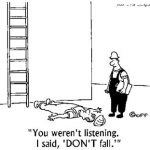Every year during the last two weeks in April I avidly attend the German Film Festival which takes place in most capital cities throughout Australia. Several years ago, I lived in Germany for twelve months, working as a medical translator. Watching German films is not only a very enjoyable way of ensuring I don’t forget the language, it provides a thought-provoking glimpse of how another culture perceives and interprets the world, life and personal issues – a great brain-boosting package.
Becoming proficient in a second language has been associated with a 4.3 year delay in the onset of dementia. In addition, speaking a second language can increase our powers of observation, expand our vision and open our minds to different ways of approaching problems. In a series of brilliant experiments, Lera Boroditsky, an assistant professor of cognitive psychology at Stanford University, demonstrated that the languages we speak affect not only our perceptions of the world but also determine our skills, our cognitive abilities and whether or not we remember certain details of an experience.
A five year old girl in the small Aboriginal community of Pormpuraaw in Cape York, can point north with her eyes closed from wherever she finds herself. The same question asked of an audience of scholars in a university lecture hall receives blank stares. The reason for this discrepancy is that the language spoken by the Pompuraaw uses the terms north, south, east and west to describe the location of everything. They have no words for left and right. Instead, you would be told that a cup was placed southeast of a plate, not to the right or left. This feature of their language trains the speaker’s brain to always be aware of where they are in relation to the points of a compass – making a compass obsolete.
What are the broader implications of this? The greater our vocabulary in our native tongue, and the more different languages we speak, the more different ways we are able to see the world and the greater our cognitive repertoire. And for those who believe they are “no good at languages”, it will be an even greater brain-boosting exercise because you’re taking on a bigger challenge than someone who finds language learning easy! If you’re already multi-lingual, whenever you get stuck on a problem, start to think about it in another language. You might be surprised by the fresh perspective this gives you.


